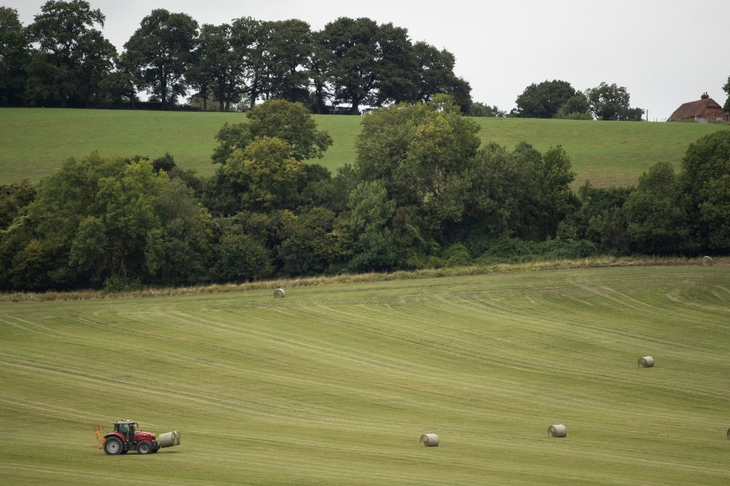Agriculture is being transformed by innovation at a rapid pace. Genetically modified crops are being grown on 190 million hectares worldwide, with on average 20 per cent higher yields and 40 per cent fewer chemicals than their non-GM counterparts. Genome editing (which involves no cross-species DNA transfer) has produced fungus-resistant wheat and disease-resistant pigs. Farmers in Ukraine and Brazil are using satellite and drone data to target fertiliser and pesticide where and when it is needed, reducing the costs and environmental impact of farming. Robots are starting to drive tractors, identify weeds and pick strawberries. New nitrogen-fixing bacteria derived from sugar cane by Nottingham University promises higher yields in maize and rice.
In a new report for the Institute of Economic Affairs, I argue that these changes will bring ecological as well as economic benefits to both producers and consumers, but that Britain risks missing out on these benefits if it fails to adopt new innovations. Global average food prices have fallen by about 0.5-1 per cent a year over the past half century in real terms despite the world population doubling, and the area of land needed to grow a given quantity of food is down by 68 per cent over the same period. This ‘land-sparing’ is the biggest environmental benefit innovation in farming brings. Thanks to rising yields, land is now being released from the plough even as the worldwide population grows. Without subsidised markets for biofuels, land sparing would be happening even faster.
In a recent comprehensive study on the effect of land sparing, led by Cambridge University, Andrew Balmford and his colleagues concluded that more intensive agriculture that uses less land may also produce fewer pollutants, cause less soil loss and consume less water. They found that organic dairy farms cause one third more soil loss and take up twice as much land as conventional dairy farming for the same amount of milk produced. Incidentally, organic farming is currently declining in the UK: down from 4 per cent of land in 2008 to just 2.9 per cent today.
So British farmers should be rushing to adopt new varieties and new techniques both to remain competitive and to protect and improve the environment. Instead we have turned out back on genetic modification and are now being forced by a recent decision at the European Court of Justice to subject genome editing to high bureaucratic barriers, long delays and heavy costs. Meanwhile, British companies such as Hummingbird Technologies are leading the robotic-agriculture revolution, but because of the poor mobile signal in the UK countryside, are applying their technology overseas in Asia and South America instead.
We are at risk of missing out on a revolution that could bring wildlife back to the countryside. Blight-resistant potatoes, derived by genome editing, require at most one spray of fungicide per season. Farmers currently spray potatoes up to 15 times a season. We are becoming more and more dependent on imported legumes, as GM soya from South America out-competes our native peas and beans for livestock feed.
Because of our day length in June and our good soil moisture, Britain currently vies with New Zealand for the world-record wheat yield: Rod Smith, who farms near Holy Island in Northumberland, saw his record of 16.52 tonnes per hectare, set in 2015, narrowly beaten by Eric Watson of South Island, NZ, in 2017. But wheat’s highly complex genome has just been decoded and efforts to edit wheat to produce still higher yields, improved disease resistance, less reliance on chemicals and better nutrient quality is already bearing fruit. Although some of this work is happening here, by tying genome editing in red tape we are working with one hand tied behind our back compared with China and North America.
If the UK, post-Brexit, looked afresh at available technologies and innovations in which Britain already leads the world, then British farmers and consumers, as early adopters, would reap both economic and environmental benefits. These include better returns on investment, lower reliance on subsidy, greater ability to compete in world markets, lower reliance on chemicals, lower use of tillage, and extensive land sparing for nature which could be built into policy. Britain should be at the forefront of encouraging this innovation in agriculture to take place.






Comments